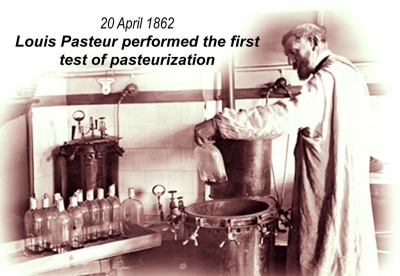
You may have noticed your mother boiling milk before serving it to you. Have you ever wondered why? She boils the milk to kill harmful bacteria that may be present in it which could make you ill. Many years ago people did not know that milk should be treated this way before consumption.
The process of pasteurization where liquids were heated between 60 and 100 degree Centigrade to kill the bacteria present in them was discovered by a French microbiologist called Louis Pasteur. Pasteur was born on December 27, 1822 in France. He completed his studies from the Ecole Normale Superieure in Paris and was appointed Professor of Physics in the Lycee (secondary school) at Dijon in 1847.
He was approached by a local brewer to investigate the decay in beet root juice in 1856. Pasteur carefully examined the beet root juice at each stage of fermentation. He noticed a number of spherical organisms floating in the yeast – the microbe that consumes sugar to transform it into alcohol. After a few days he noticed rod-shaped organisms in the liquid.
Pasteur suggested a process of heating and then rapidly cooling liquids or food in order to kill microbes that may cause disease. This process later came to be called pasteurization. He completed the first pasteurization test on April 20, 1862. His method was soon used all over the world to preserve milk and beer.
He is also one of the earliest proponents of the germ theory of disease, which proposed that diseases could be prevented by eliminating germs. He was instrumental in heralding the antiseptic age in medicine which led to many lives being saved through proper ‘operation theatre’ hygiene.
This year marks 160 years since Pasteur’s initial pasteurization test.
Picture Credit : Google




